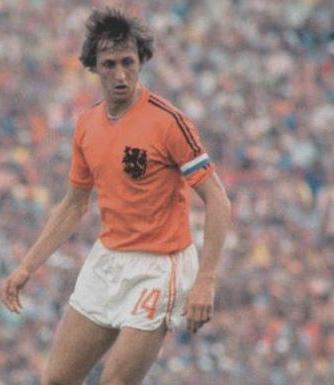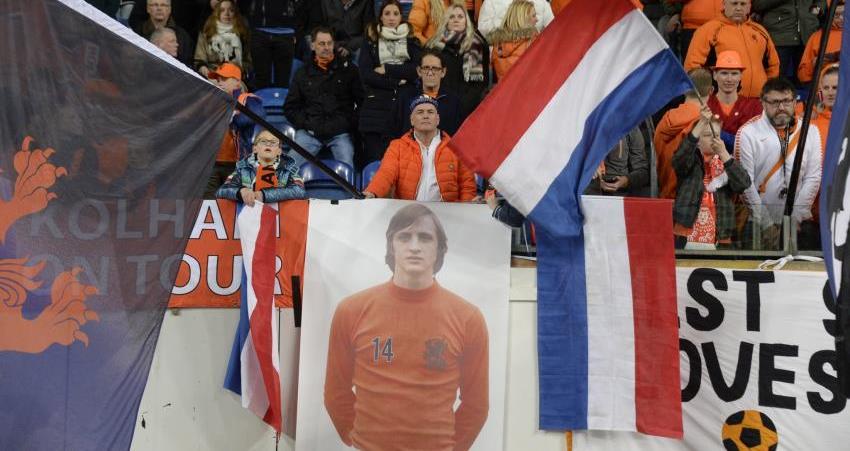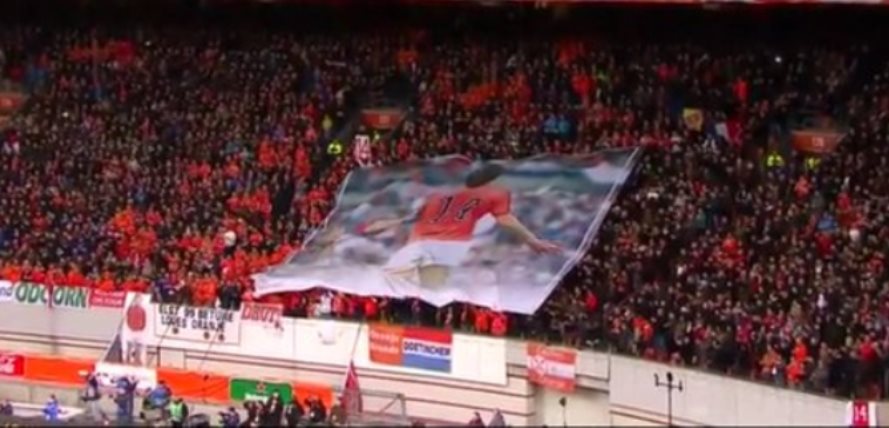Number 14
3What a year it has been for creative people being taken away too young.
Johan Cruyff was arguably the greatest European footballer of all time. But that was only part of the story.
If you want to commemorate his passing you really need to read David Winner’s Brilliant Orange; a very interesting if somewhat academic look at the rebirth of cool; the Total Football era of Dutch football in the 1970s; first through Ajax FC, and then the national side.
Winner takes a wider look at things; noting the uniqueness of the Netherlands; its history, architecture, and its congested nature. It argues the people growing up in the country are challenged by its crowded nature, and are therefore conditioned to see space in a way others can not. It also argues strongly that this footballing revolution gave the nation an identity, noting its origins started with the social changes of the late 1960s. The nation could final put a line under the occupation years of World War II.
It is not a simple read, but it outlines that this was not just a football team.
The origins of Total Football lay with the coaching philosophy of Rinus Michels. By its nature it involved buy-in from all the players. The bridge between the two was Cruyff.
First there was the trio of European Cup wins with Ajax. For two consecutive seasons they won every home game; 46 of them.
This was then transferred to the national side for the 1974 World Cup, where the Netherlands qualified for the first time since 1938. They were demonstrably the best team at that competition, beating Argentina 4-0, and Uruguay, East Germany and Brazil 2-0. Yet the footage you see the most is from the 0-0 draw with Sweden.
The fact that side slipped at the final hurdle to hosts West Germany is almost universally regarded with sadness, and is still analysed in Holland. For example, there is a play about it. The loss to next hosts Argentina in 1978 signalled the end of that era.
At the 1974 World Cup he painted out the Adidas stripes on the boots that the Dutch Board equipped him with and wore a shirt with just two stripes across the shoulder, instead of the Adidas three. He had already signed his personal deal with Puma, and what could the Dutch board do about it?
He then refused to attend the 1978 World Cup in protest at the Argentina military dictatorship led by Videla. Imagine athletes taking that kind of stand these days, bearing in mind the venues for the next two World Cups.
Cruyff spent his later life coaching, and spreading the word. In contrast, his two contemporaries from a playing point of view; Franz Beckenbauer and Michel Platini turned to politics and have been forever tainted.
His endearing legacy will be with Barcelona where he was in charge for almost a decade. He refined Total Football into its child Tika-taka; always evolving the game. That style of football that won Spain the 2010; ironically in a final against the Dutch who played a totally different brand of football altogether on that day.
Oh, and here is that turn, and more.



Superb tribute Graeme. Good grief, you admitted to me you didn’t think you could do the great man justice. But…you nailed it, I reckon. And being half-dutch on my mum’s side of the fence, Cruyff was an absolute legend among my family. So, cheers very much for such a perfectly-toned and thoughtfully-written piece.
Two things
(a) Post-football there is http://johancruyffinstitute.com/en/
(b) He said that he didn’t go in 1978 because his family had been threatened.
All legends have to come to an end eventually…
RIP 🙁